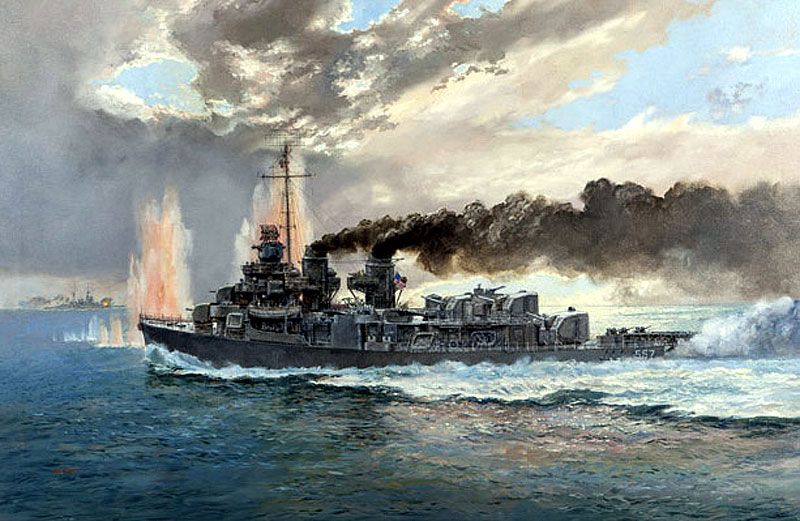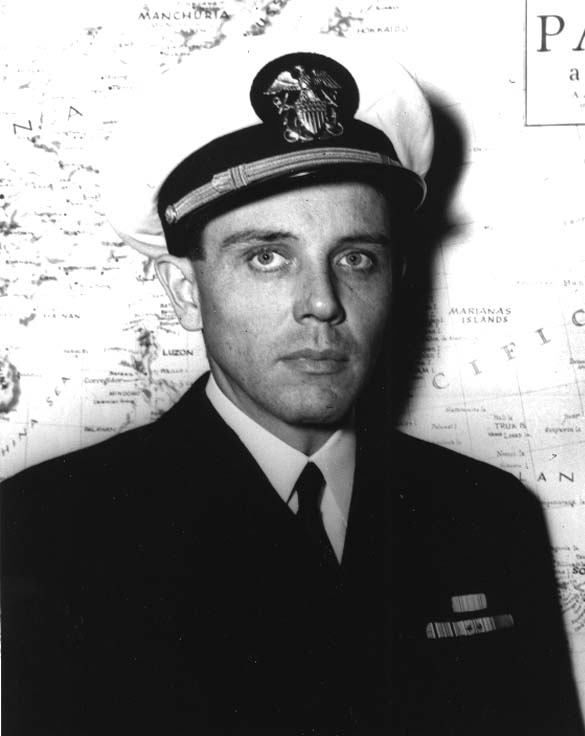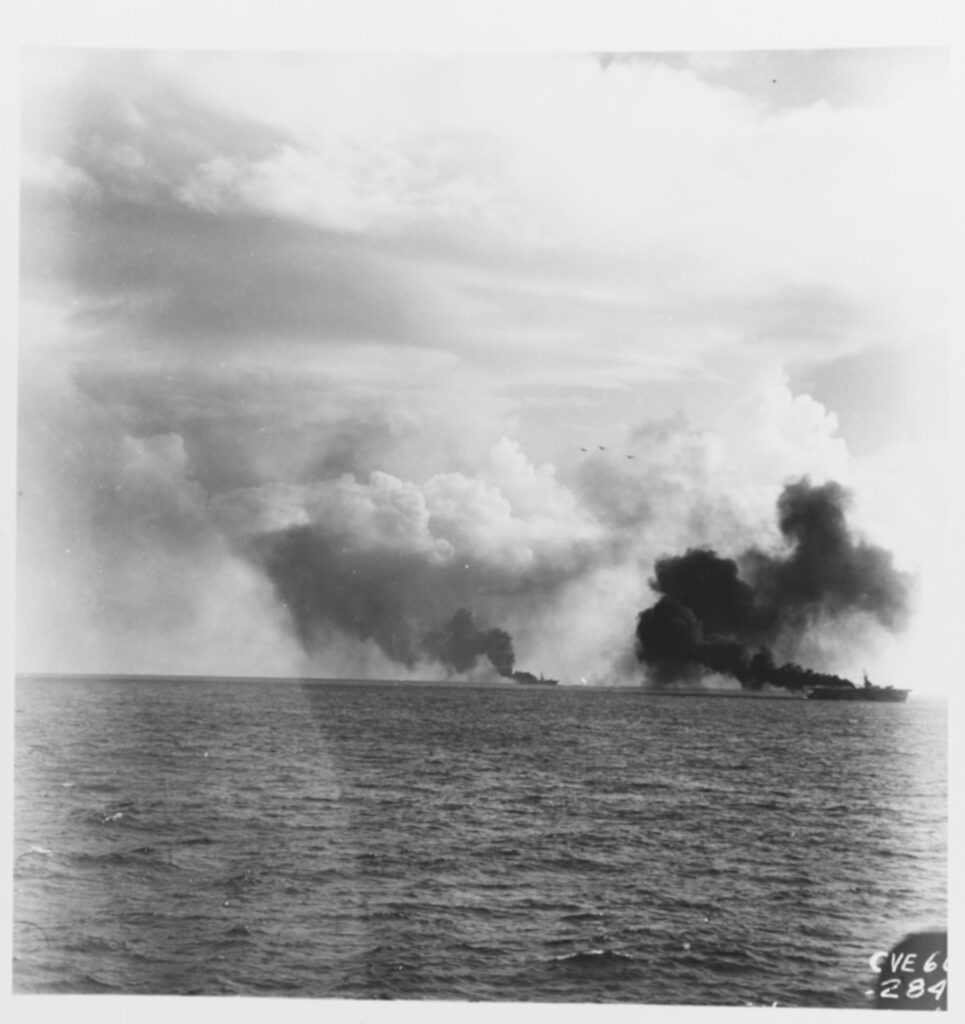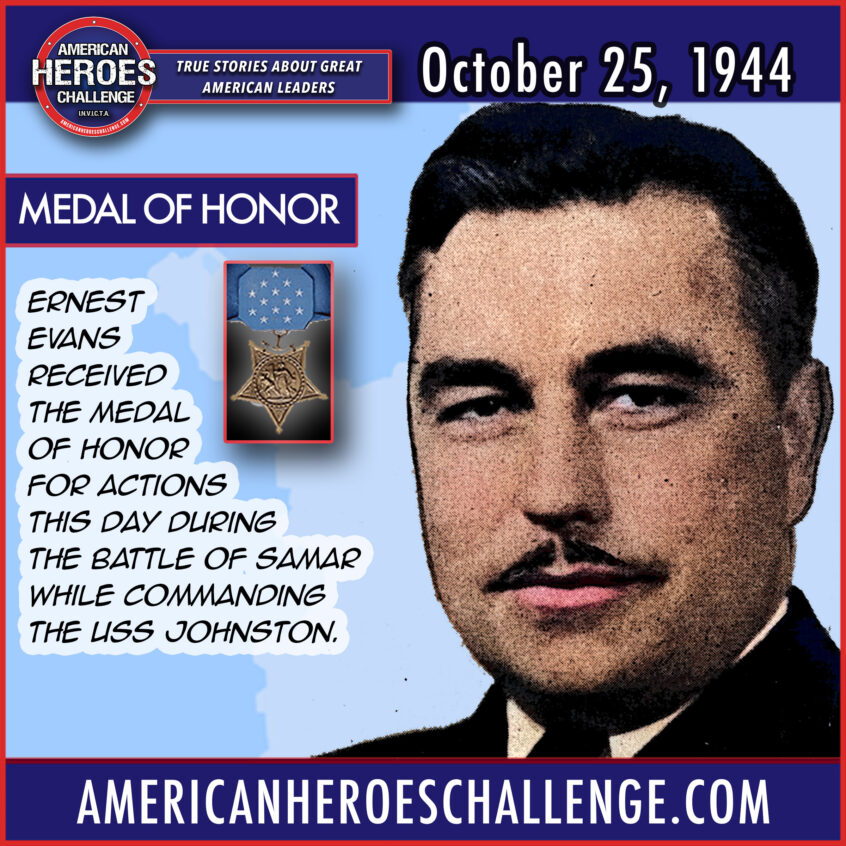One of the best maxims I learned in the Marine Corps is, “when the situation is obscure, attack!” Ernest Evans, captain of the USS Johnston, acted in this spirit when he earned the Medal of Honor posthumously during the Battle of Samar in World War II.

Half Cherokee and one quarter Creek, Evans graduated from the Naval Academy in 1931 and had fought in the Pacific since the start of the War, commanding the USS Alden and then the USS Johnston. When taking command of the Johnston, Evans told his crew, “this is going to be a fighting ship. I intend to go into harm’s way.”

During the Leyte landings, a Japanese fleet suddenly appeared and threatened the invasion armada. Evans, the Johnston, and three other ships unhesitatingly attacked the superior force.
Some sailors claim Evans made this announcement over the intercom as his ship pressed the attack: “A large Japanese fleet has been contacted. They are fifteen miles away and headed in our direction. They are believed to have four battleships, eight cruisers, and a number of destroyers. This will be a fight against overwhelming odds from which survival cannot be expected. We will do what damage we can.”
In fairness, others attribute this speech to Captain Robert Copeland of the USS Samuel B Johnston, who accompanied Evans and his crew in the attack. Copeland, who earned the Navy Cross, and survived the war, obviously should be honored and remembered as well.

The Johnston was badly damaged by the Japanese, but the strength and audacity of the task force, led by Captain Evans, stunned the Japanese force, which turned tail.

Evan’s audacious leadership saved the American landing force from disaster. Honor and remember him, the men of the USS Johnston, and all those who fought that day.

